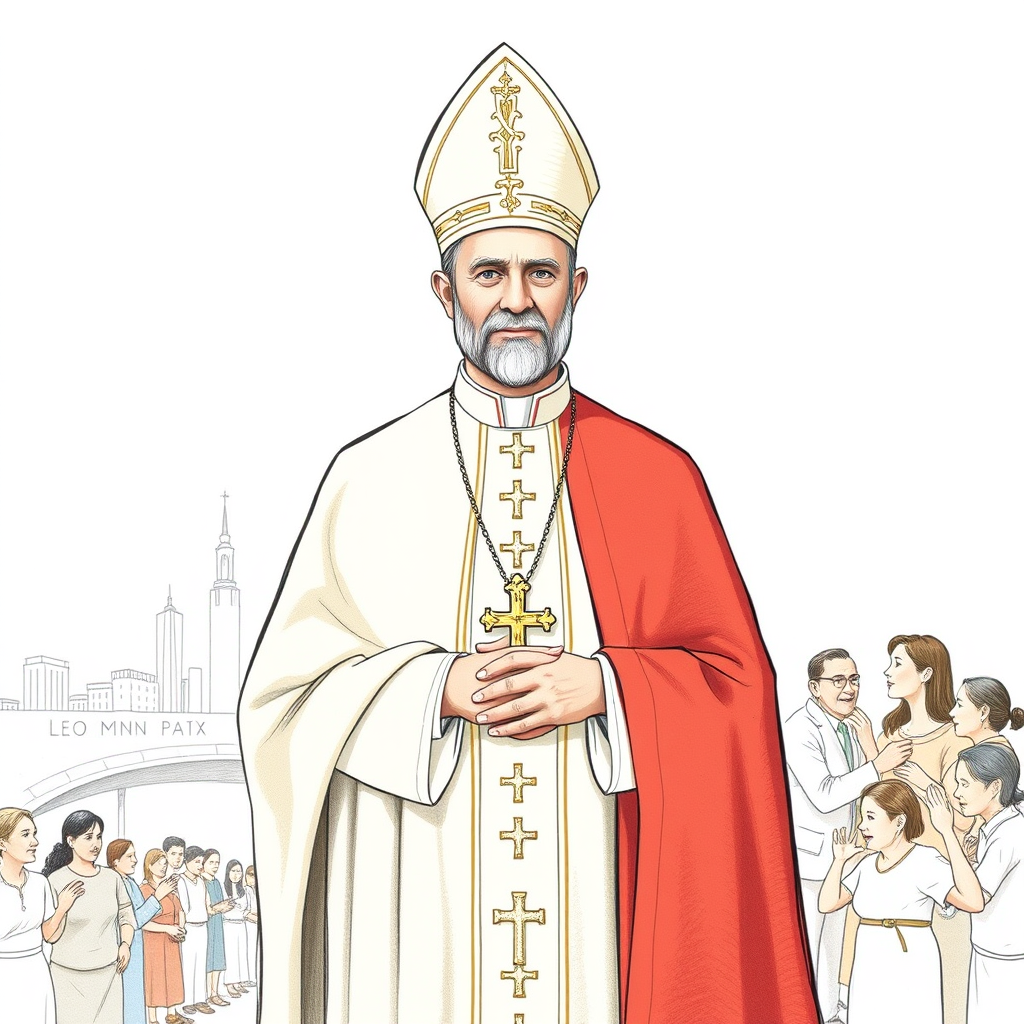Pope Leo XIV: The Surprising New Pope's Stance on Immigration

Pope Leo XIV, formerly Robert Prevost, made history as the first American pontiff when he was elected on Thursday, just weeks after the passing of Pope Francis. Raised in Chicago, Leo XIV studied mathematics at Villanova University before dedicating decades of his life to serving the Catholic Church in Peru. His election also marked a significant milestone as he became the first pope from the Augustinian order, founded in 1244. The Augustinians, known for their reliance on charitable donations, emphasize community and missionary work, particularly among the poor and marginalized.
Leo XIV’s background and beliefs may have influenced his public critiques of the Trump administration’s immigration policies while he was still a cardinal. This stance puts him at odds with Vice President JD Vance, who justified the Trump administration’s America First agenda using his Catholic faith. In a January interview with Fox News, Vance argued for prioritizing Americans over immigrants, a view that Leo XIV has publicly challenged.
To gain deeper insights into Pope Leo XIV and understand why the conclave chose him, the podcast ‘Today, Explained’ interviewed Terence Sweeney, an assistant teaching professor at Villanova University. Sweeney, an alumnus of the pope’s class of ’77 and an expert on the Augustinian order, shared his thoughts on the historic election.
Sweeney expressed both surprise and anticipation regarding Leo XIV’s selection. ‘I was hopeful for him, but he’s an American, and traditionally, that’s seen as, ‘Oh, it won’t happen.’ So I both kind of called it and was totally shocked,’ he said. Sweeney highlighted Prevost’s journey from Chicago to Peru, where he spent most of his priesthood serving in missionary work. This experience, Sweeney believes, sets Leo XIV apart from previous popes, who were often pastors, scholars, or diplomats but not missionaries.
Leo XIV’s choice of the papal name Leo, which connects him to traditional papal figures like Pope Leo the Great and Pope Leo XIII, suggests a blend of tradition and progressivism. Pope Leo XIII was known for his contributions to Catholic social thought, which aligns with the values of progressive Catholics. Leo XIV’s inaugural address echoed Pope Francis’s themes of bridge-building and peace, indicating a continuation of Francis’s legacy while potentially bridging gaps within the church.
The Augustinians, Sweeney explained, are grounded in community living, a deep sense of heartfelt connections, and a strong mission to serve others. This mission is reflected in Leo XIV’s stance on immigration, which emphasizes the expansion of one’s heart to include all, especially those in need. This view contrasts with Vice President Vance’s more inward-focused interpretation of the ‘order of loves,’ which prioritizes Americans over immigrants.
Leo XIV’s public criticism of Vice President Vance’s views on immigration is a stark indication of his prophetic role as a bishop and now as the bishop of Rome. Sweeney believes that Leo XIV will use his position to address a range of issues, including the environment, immigration, and abortion, challenging American political binaries. As a pro-refugee and pro-life pope, Leo XIV is expected to advocate for the marginalized and forgotten, continuing the prophetic witness of his predecessors.
In conclusion, Pope Leo XIV’s election represents a unique blend of American heritage and Augustinian values, promising a papacy that will likely emphasize social justice, community service, and a broadened sense of love and inclusion. His background and public stances suggest a leader who is not afraid to challenge political norms and advocate for the most vulnerable, making his papacy one to watch closely in the coming years.